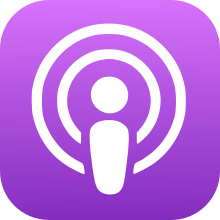DOCTOR INFORMATION
Preparing for Medical School Interviews
Interviews are undoubtedly the most daunting aspect of applying to medical school, but this guide is designed to help you succeed. The good news is that it is a myth that you cannot prepare for medical school interviews. Find out all about what to expect at an interview and how to prepare for them to give you the best chance of success.

Types of interview:
Traditional interviews:
 Panel style (definitely at least 1 practising doctor; perhaps a university faculty member, a current medical student and a non-medical person)
Panel style (definitely at least 1 practising doctor; perhaps a university faculty member, a current medical student and a non-medical person)
 Usually approximately 3 interviewers 👩
Usually approximately 3 interviewers 👩
 20-40 minutes ⏱
20-40 minutes ⏱
Multiple Mini Interviews:
 Several short assessment stations (approximately 10 minutes each) ⏱
Several short assessment stations (approximately 10 minutes each) ⏱
 Performance assessed individually at each station ✍
Performance assessed individually at each station ✍
 Includes formal interview stations (question and answer) and practical interview stations (performing a task)
Includes formal interview stations (question and answer) and practical interview stations (performing a task)
 E.g. problem solving or role play
E.g. problem solving or role play
 1-2 hours ⏱
1-2 hours ⏱
Group Interviews:
 3-6 applicants asked to work as a team 👫👫
3-6 applicants asked to work as a team 👫👫
 E.g. team building exercise or debating
E.g. team building exercise or debating
 5-10 minutes ⏱
5-10 minutes ⏱
Oxbridge Interviews:
 Structured similarly to traditional interviews
Structured similarly to traditional interviews
 Academically challenging 🧠
Academically challenging 🧠
 Abstract questions which focus on your reasoning rather than recall
Abstract questions which focus on your reasoning rather than recall
 Two or three 15-20 minute interviews ⏱
Two or three 15-20 minute interviews ⏱
 Varies by college
Varies by college
What are interviewers looking for?
 Passionate about medicine 🏨
Passionate about medicine 🏨
 Transferable skills: good team-player, leadership qualities, good communication skills and empathetic ✅
Transferable skills: good team-player, leadership qualities, good communication skills and empathetic ✅
 Knowledgeable about the medical school and the course itself (can demonstrate why you applied)
Knowledgeable about the medical school and the course itself (can demonstrate why you applied)
 Understanding of the career of a doctor, the life of a medical student, and the importance of work-life balance
Understanding of the career of a doctor, the life of a medical student, and the importance of work-life balance
 Insight into working as a doctor in the NHS (understanding the core values and issues the NHS faces)
Insight into working as a doctor in the NHS (understanding the core values and issues the NHS faces)
 Relevant and sufficient work experience 🏨
Relevant and sufficient work experience 🏨
 Understanding of ethics and medico-legal knowledge
Understanding of ethics and medico-legal knowledge
Criteria being assessed:
 Intellectual capability - appropriate knowledge and ability to use it to reason
Intellectual capability - appropriate knowledge and ability to use it to reason
 Communication - ability to communicate effectively and empathetically, adapting your language to suit the intended audience 🧠
Communication - ability to communicate effectively and empathetically, adapting your language to suit the intended audience 🧠
 Insight - recognise your mistakes and limitations, and learn from them
Insight - recognise your mistakes and limitations, and learn from them
 Problem solving - solve complex problems using your logic and lateral thinking to make decisions 🤔
Problem solving - solve complex problems using your logic and lateral thinking to make decisions 🤔
 Initiative - make good decisions and choices under pressure 🤨
Initiative - make good decisions and choices under pressure 🤨
 Leadership and team work - work alongside others effectively and demonstrate the ability to lead where appropriate
Leadership and team work - work alongside others effectively and demonstrate the ability to lead where appropriate
Quick Summary:
- Traditional interviews - panel style Q & A
- Multiple Mini interviews - multiple short assessment stations
- Group interviews - small groups work together as a team
- Oxbridge interviews - similar to traditional interviews but more abstract questions
Preparing for your interview:
Top tips:
 Interview coaching - got as much coaching as possible to make sure you are as prepared as possible (We offer intensive online ZOOM 1-2-1 Medical School interview coaching - found here!)
Interview coaching - got as much coaching as possible to make sure you are as prepared as possible (We offer intensive online ZOOM 1-2-1 Medical School interview coaching - found here!)
 Mock interviews - find out what format the interview will take, and recreate this environment with family/friends/teachers to practice until you feel confident and prepared (We offer mock interviews - found here!) 😀
Mock interviews - find out what format the interview will take, and recreate this environment with family/friends/teachers to practice until you feel confident and prepared (We offer mock interviews - found here!) 😀
 Reflection - reflect on your achievements, work experience and any wider reading, all of which you may be asked about, or may be useful to discuss, in the interview 📚
Reflection - reflect on your achievements, work experience and any wider reading, all of which you may be asked about, or may be useful to discuss, in the interview 📚
 See our blog about common interview questions and prepare bullet point answers to potential interview questions 📃
See our blog about common interview questions and prepare bullet point answers to potential interview questions 📃
 Record yourself - answer practice interview questions and record yourself to see how you could improve 📹
Record yourself - answer practice interview questions and record yourself to see how you could improve 📹
 Research - the medical school you are applying to and make sure you know why you chose it 💻
Research - the medical school you are applying to and make sure you know why you chose it 💻
 Motivations - make sure you know and can confidently discuss your motivations for studying medicine
Motivations - make sure you know and can confidently discuss your motivations for studying medicine
 Contact students - at the medical school to discuss the interview process
Contact students - at the medical school to discuss the interview process
 Read blogs - available online, written by students at the medical school to gain an insight into being a medical student at the university you are interviewing at 💻
Read blogs - available online, written by students at the medical school to gain an insight into being a medical student at the university you are interviewing at 💻
 Read - all of the information available on the medical school’s website and elsewhere online 💻
Read - all of the information available on the medical school’s website and elsewhere online 💻
 Ensure you fully understand the interview instructions you have been given 📃
Ensure you fully understand the interview instructions you have been given 📃
 Personal statement - make sure you know your personal statement completely and can confidently discuss all aspects of it 📃
Personal statement - make sure you know your personal statement completely and can confidently discuss all aspects of it 📃
 Practice public speaking - to make sure you are able to express yourself eloquently and concisely 🗣
Practice public speaking - to make sure you are able to express yourself eloquently and concisely 🗣
Group interview tips:
 Show that you are confident and charismatic 😀
Show that you are confident and charismatic 😀
 Be supportive and respectful - e.g. try to include quieter members of the group in the discussion and encourage other people's ideas 👍
Be supportive and respectful - e.g. try to include quieter members of the group in the discussion and encourage other people's ideas 👍
 Smile to show you are friendly and a good team player 😀
Smile to show you are friendly and a good team player 😀
 Do not be bossy ❌
Do not be bossy ❌
 Do not interrupt other members of the group, it is not a competition❗
Do not interrupt other members of the group, it is not a competition❗
 Do not stay quiet or be shy 🤫
Do not stay quiet or be shy 🤫
 Do not belittle other members of the group, you are on the same ‘team’ ❌
Do not belittle other members of the group, you are on the same ‘team’ ❌
Our advice:
 Ask each team member what they are good at to delegate tasks accordingly❓
Ask each team member what they are good at to delegate tasks accordingly❓
 If you feel confident, take the lead as it will help you stand out
If you feel confident, take the lead as it will help you stand out
 Communicate effectively with your team, overcoming any conflicts 🗣
Communicate effectively with your team, overcoming any conflicts 🗣
 Demonstrate your team working skills
Demonstrate your team working skills
 Be prepared for questions reflecting on your role and the successes and failures in this task afterwards❓
Be prepared for questions reflecting on your role and the successes and failures in this task afterwards❓
Oxbridge interview tips:
 The key aspect is assessing HOW a student thinks 🧠
The key aspect is assessing HOW a student thinks 🧠
 The interviewers are looking at how you reason rather than your ability to reach a ‘correct’ conclusion to an abstract question ❓
The interviewers are looking at how you reason rather than your ability to reach a ‘correct’ conclusion to an abstract question ❓
 Use information from your additional reading to strengthen your answer 📚
Use information from your additional reading to strengthen your answer 📚
 To answer abstract questions:
To answer abstract questions:
- Summarise - your thought process aloud to the interviewers 🗣
- Logically establish your argument - by explaining your reasoning
- Acknowledge different perspectives
- Be prepared to answer questions - on what you have said❓
Extra-curricular reading:
 Additional reading is vital to enable you to answer interview questions successfully 📚
Additional reading is vital to enable you to answer interview questions successfully 📚
 Keep copies of everything you read and try to summarise each article into a few sentences which you can refer to when preparing for your interview 📝
Keep copies of everything you read and try to summarise each article into a few sentences which you can refer to when preparing for your interview 📝
 Medical reading examples: The British Medical Journal (BMJ), Nature, The Lancet, The New England Journal of Medicine (NEJM) 📕
Medical reading examples: The British Medical Journal (BMJ), Nature, The Lancet, The New England Journal of Medicine (NEJM) 📕
 Non-medical reading examples: The Economist, newspapers, popular science books/ videos/ podcasts 📗
Non-medical reading examples: The Economist, newspapers, popular science books/ videos/ podcasts 📗
 Whilst scientific knowledge is of course the focus, a wider range of reading will be beneficial for Oxbridge interviews (literature, current affairs, economics, history, art and physics)
Whilst scientific knowledge is of course the focus, a wider range of reading will be beneficial for Oxbridge interviews (literature, current affairs, economics, history, art and physics)
Quick Summary:
- Read as much as you can about the course and medical school
- Be prepared to talk about your motivations
- Practice as much as possible
- Demonstrate your team-working skills by not being too dominant or too shy in group tasks
- Talk the interviewers through your though process when answering abstract Oxbridge questions
- Do as much extra-curricular reading as possible!
Structuring your answer to interview questions:
The Essay Technique:
 Structure your answer to questions like you would structure an essay, with an introduction, main body and conclusion 📑
Structure your answer to questions like you would structure an essay, with an introduction, main body and conclusion 📑
- Introduction - acknowledge what the question is asking, introduce the topic and present your point of view
- Main body - explain your point of view by providing a balanced argument with examples
- Conclusion - wrap your answer up and finish by summarising your point of view
The Reflection Technique:
 Answer the question by reflecting on a situation and considering your actions, evaluating and analysing them 🧐
Answer the question by reflecting on a situation and considering your actions, evaluating and analysing them 🧐
- Description - tell the interviewer what happened
- Feelings - explain your thoughts and feelings at the time
- Evaluation - evaluate what was good and bad about the experience in question
- Analysis - analyse what else you learned from the situation
- Conclusion - did you do the right thing and what else could you have done
- Action plan - what have you learned from this situation and what would you do differently next time
The STARE technique:
 When asked to give a specific example of a time you did something or exhibited a certain skill, follow the STARE method to answer❗
When asked to give a specific example of a time you did something or exhibited a certain skill, follow the STARE method to answer❗
- Situation - describe the situation
- Task - explain what your task was
- Action - explain what you did, how you did it and why
- Result - discuss the result of your actions
- Evaluation - reflect on what went well and what you could have done differently
Quick Summary:
- The Essay Technique - structure your answer with an introduction, main body and conclusion
- The Reflection Technique - structure your answer by following this method to reflect on your actions
- The STARE technique - structure your answer by discussing the situation, your task, the action you took, the result and then evaluate it
Summary:
- Interviews can be daunting, but with adequate preparation and coaching you can greatly increase your chance of success
- It is important you find out beforehand what sort of interview it will be to allow you to prepare
- Understand what interviewers are looking for and how you will be assessed so you can demonstrate the appropriate skills
- Practise as much as possible: do mock interviews and record yourself answering practice questions
- Research the interview, the course and the medical school as much as possible
- Know your motivations for applying
- Do as much medical and non-medical extra-curricular reading as possible and ensure you are able to talk confidently about it
- Structure your answers using the Essay, Reflection or STARE techniques
- Good luck!













